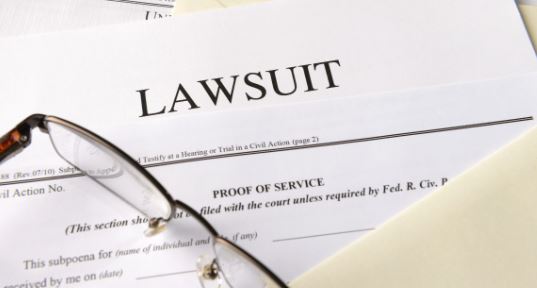The C.W. Park USC lawsuit has gained significant attention in recent months, and it is essential to understand the key facts and implications surrounding this legal case. This article aims to provide a comprehensive overview of the lawsuit, exploring its background, key allegations, parties involved, and the potential impact on USC and the academic community.
Background of the Lawsuit
The C.W. Park USC lawsuit centres around allegations of academic misconduct and discrimination. Dr. C.W. Park, a respected professor at the University of Southern California (USC), filed a lawsuit against the institution in response to what he claims is a violation of his academic freedom and defamation of character. The lawsuit alleges that USC engaged in discriminatory practices, leading to the denial of tenure for Dr. Park.
Dr. Park had been an esteemed member of the USC faculty for over a decade, making significant contributions to his field of expertise. However, the tenure review process resulted in a negative outcome despite his notable research accomplishments and positive evaluations from colleagues and students. Dr. Park contends that this decision was based on his race and nationality rather than academic merit.
Key Facts and Allegations
The C.W. Park USC lawsuit contains several key facts and allegations crucial to understanding the nature of the case. Dr. Park asserts that he faced discrimination based on his Asian heritage and Korean nationality during the tenure review process. He claims that USC’s decision to deny him tenure was unjust and a violation of his rights as an academic.
Furthermore, the lawsuit alleges that USC campaigned to defame Dr. Park’s character following the tenure denial. It is claimed that the university disseminated false and damaging information about him, tarnishing his reputation within the academic community. These allegations amplify the severity of the lawsuit, as they implicate USC in discriminatory practices and professional defamation.
Parties Involved in the Lawsuit
The C.W. Park USC lawsuit involves several parties, each playing a significant role in the legal proceedings. Dr. C.W. Park is the plaintiff, representing himself in the lawsuit. As the aggrieved individual, he seeks justice and compensation for the alleged harm caused by USC’s actions.
On the other side of the case, the defendants are the University of Southern California and the individuals involved in the tenure review process. USC, as an institution, faces potential legal and reputational consequences due to the allegations made by Dr. Park. The individuals involved in the tenure review process may also face personal liability if found to have engaged in discriminatory practices or defamation.
Implications for USC
The C.W. Park USC lawsuit has significant implications for the university. If the allegations made by Dr. Park are proven true in court, USC may face severe consequences, including reputational damage and financial penalties. Discrimination and defamation are serious offences that can undermine the credibility and integrity of any academic institution.
Moreover, the lawsuit may prompt USC to reevaluate its tenure review process and ensure that it is fair, transparent, and free from bias. It highlights the importance of diversity and inclusion within academic institutions and the need to address any systemic issues that may hinder equal opportunities for all faculty members.
Impact on the Academic Community
The C.W. Park USC lawsuit has reverberating implications for the broader academic community. It serves as a reminder of the challenges faced by minority faculty members in higher education and the potential for discrimination within tenure review processes. The outcome of this lawsuit could set a precedent for future cases and influence how academic institutions approach issues of diversity, equity, and inclusion.
Additionally, the lawsuit may inspire other faculty members who believe they have faced discrimination to come forward and seek justice. It may spark conversations and initiatives to reform academic institutions to ensure a more equitable and inclusive environment for all faculty, regardless of race, nationality, or other protected characteristics.
Response from C.W. Park and USC
As with any lawsuit, both parties have responded to the allegations made in the C.W. Park USC lawsuit. Dr. Park has consistently maintained his innocence and has publicly stated that he seeks fairness and justice. He believes that the tenure denial and subsequent defamation have affected his professional and personal life.
On the other hand, USC has denied the allegations of discrimination and defamation. The university has released statements affirming its commitment to diversity and academic freedom. USC asserts that the tenure review process is thorough and unbiased, adhering to established guidelines and principles. The institution is prepared to defend its actions in court and refute the claims made by Dr Park.
Legal Process and Potential Outcomes
The C.W. Park USC lawsuit will follow a legal process, typically involving various stages, such as discovery, pre-trial motions, and potentially a trial. Both parties will present evidence and arguments to support their respective positions. The court will then determine the outcome based on the presented evidence and applicable laws.
Potential outcomes of the lawsuit include a verdict in favour of either party, a settlement agreement, or the case being dismissed. The court’s decision will have far-reaching consequences for Dr. Park and USC and academic institutions nationwide, as it may influence future legal cases and policies surrounding tenure, discrimination, and academic freedom.
Public Opinion and Media Coverage
The C.W. Park USC lawsuit has garnered significant public attention and media coverage. It has sparked discussions and debates about academic freedom, discrimination, and the integrity of tenure review processes. Various media outlets have reported on the case, providing analysis, interviews, and updates on the legal proceedings.
Public opinion on the lawsuit is divided, with some supporting Dr. Park’s claims of discrimination and others questioning the validity of the allegations. Depending on the evidence presented and the court’s decision, the lawsuit’s outcome may sway public opinion. It remains an ongoing and closely watched legal battle that has implications beyond the boundaries of USC.
Conclusion and Future Implications
The C.W. Park USC lawsuit represents a critical moment in the academic community, shedding light on discrimination, academic freedom, and the tenure review process. The outcome of this case will not only determine the fate of Dr. Park and USC but also shape future policies and practices within academic institutions.
Regardless of the court’s decision, this lawsuit serves as a reminder of the importance of fairness, transparency, and inclusivity within higher education. It highlights the need for ongoing efforts to create an environment where all faculty members, regardless of their background, have equal opportunities to succeed and contribute meaningfully to their respective fields.






